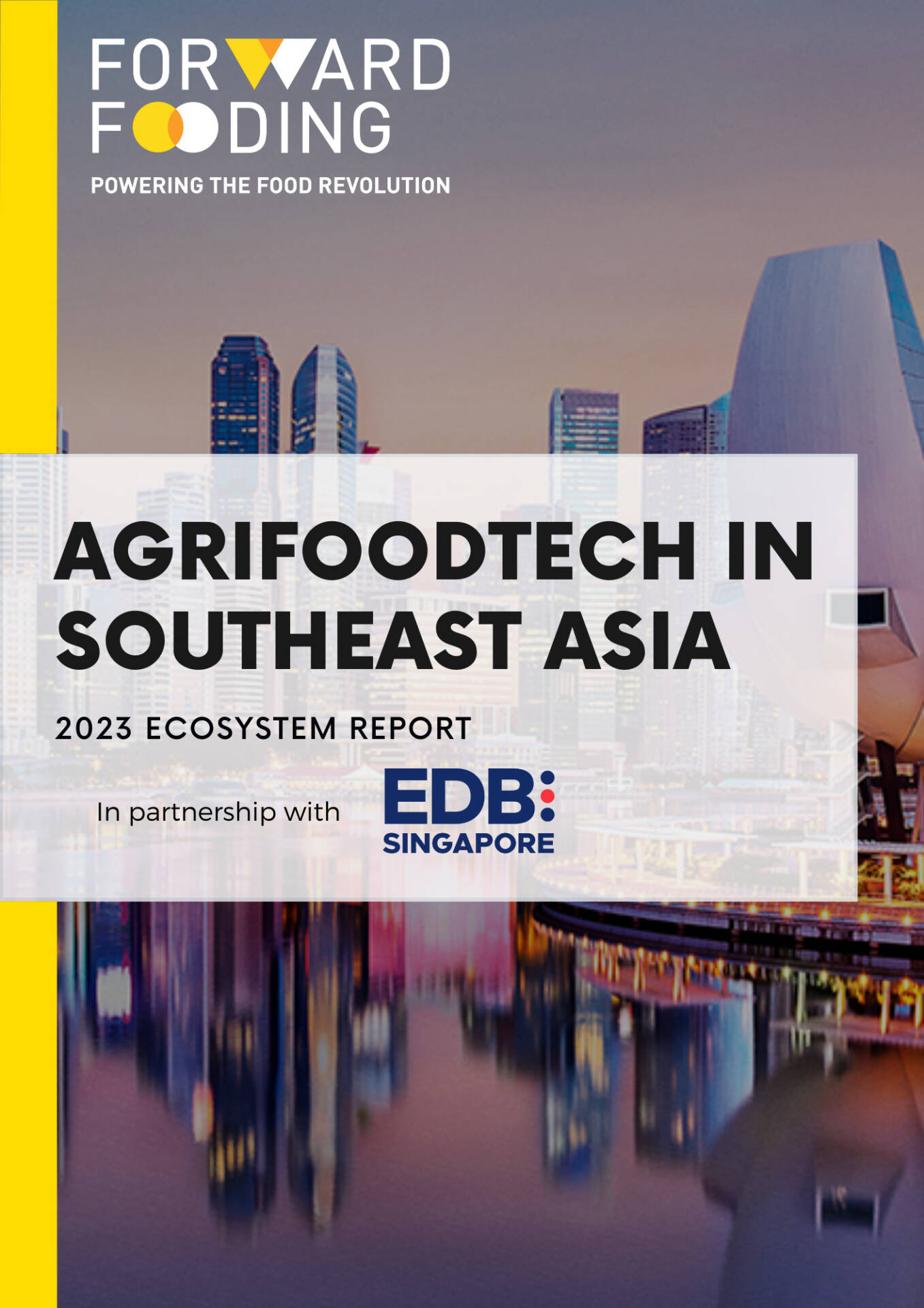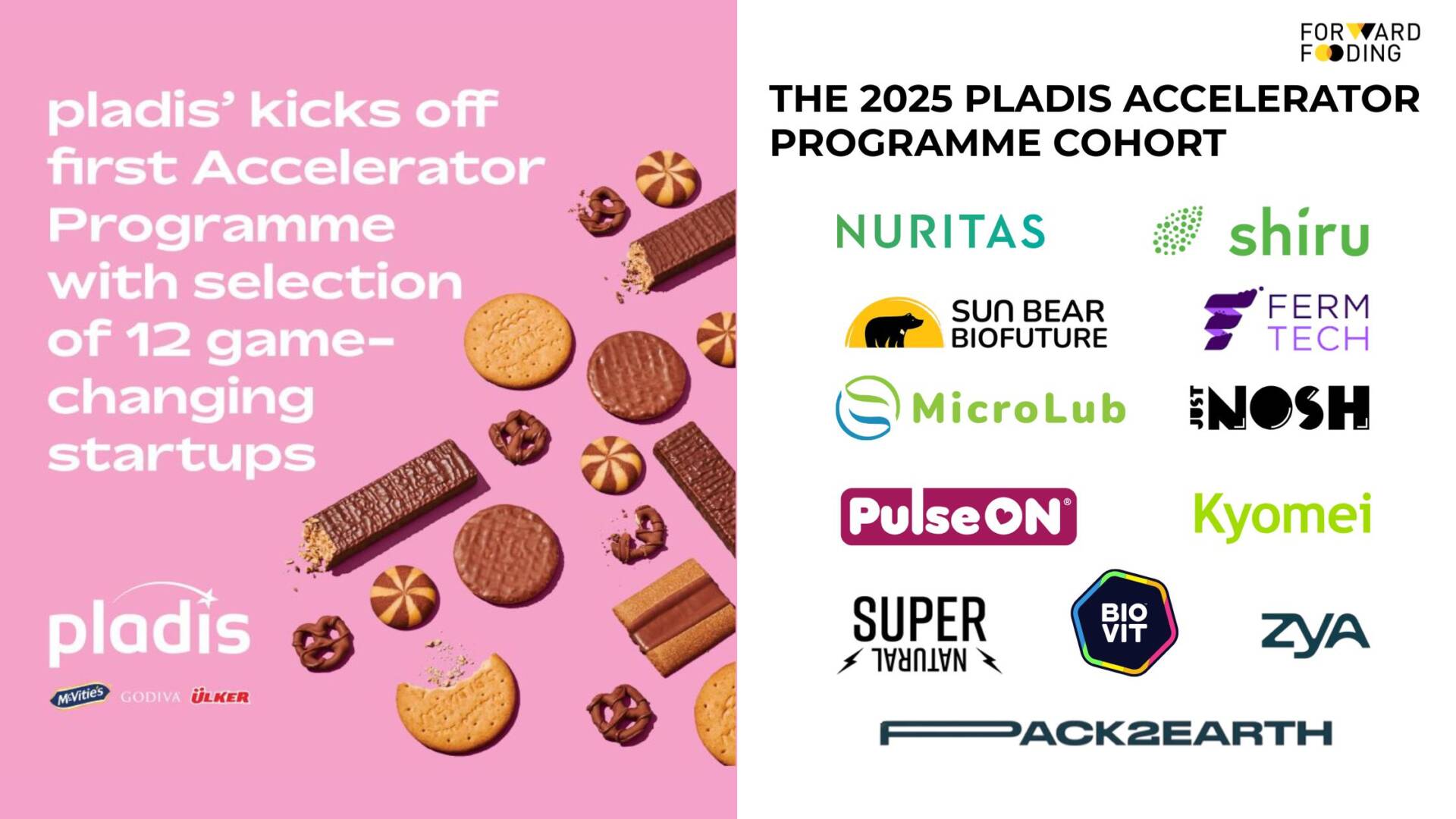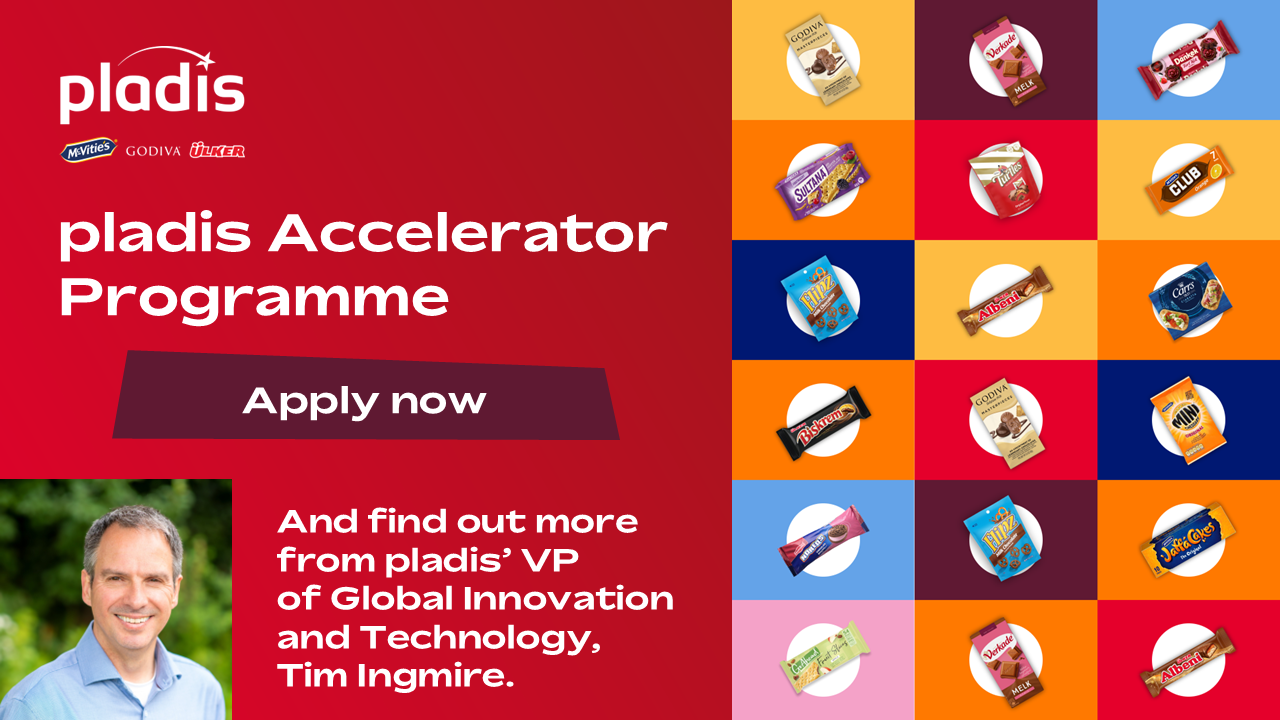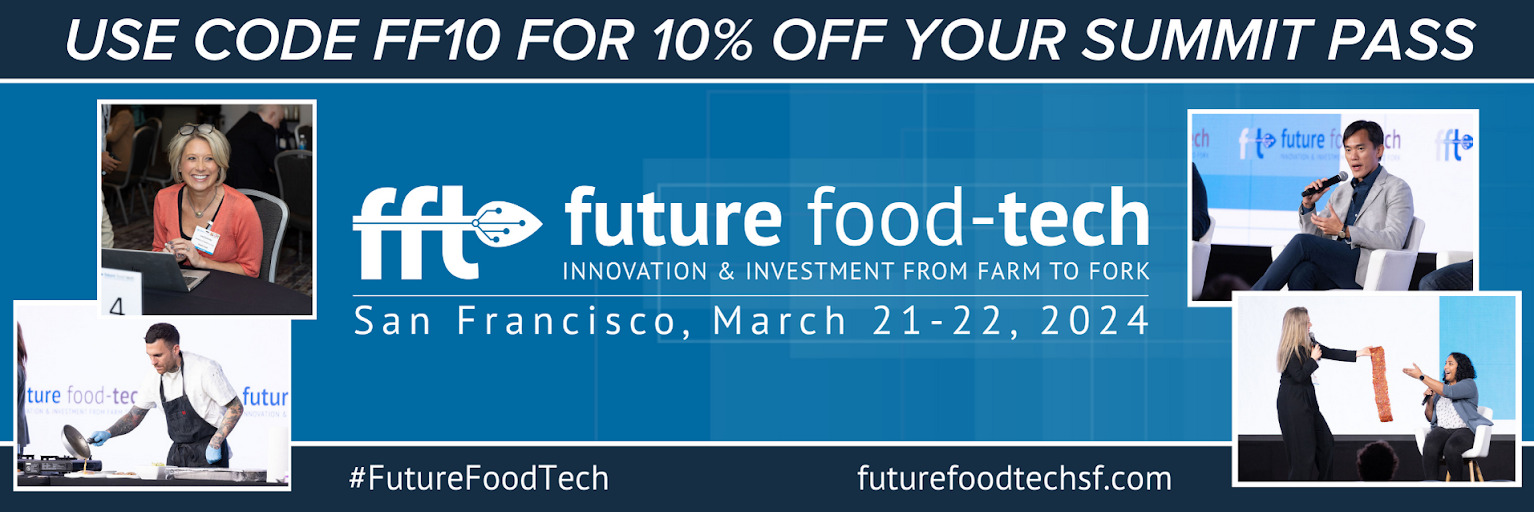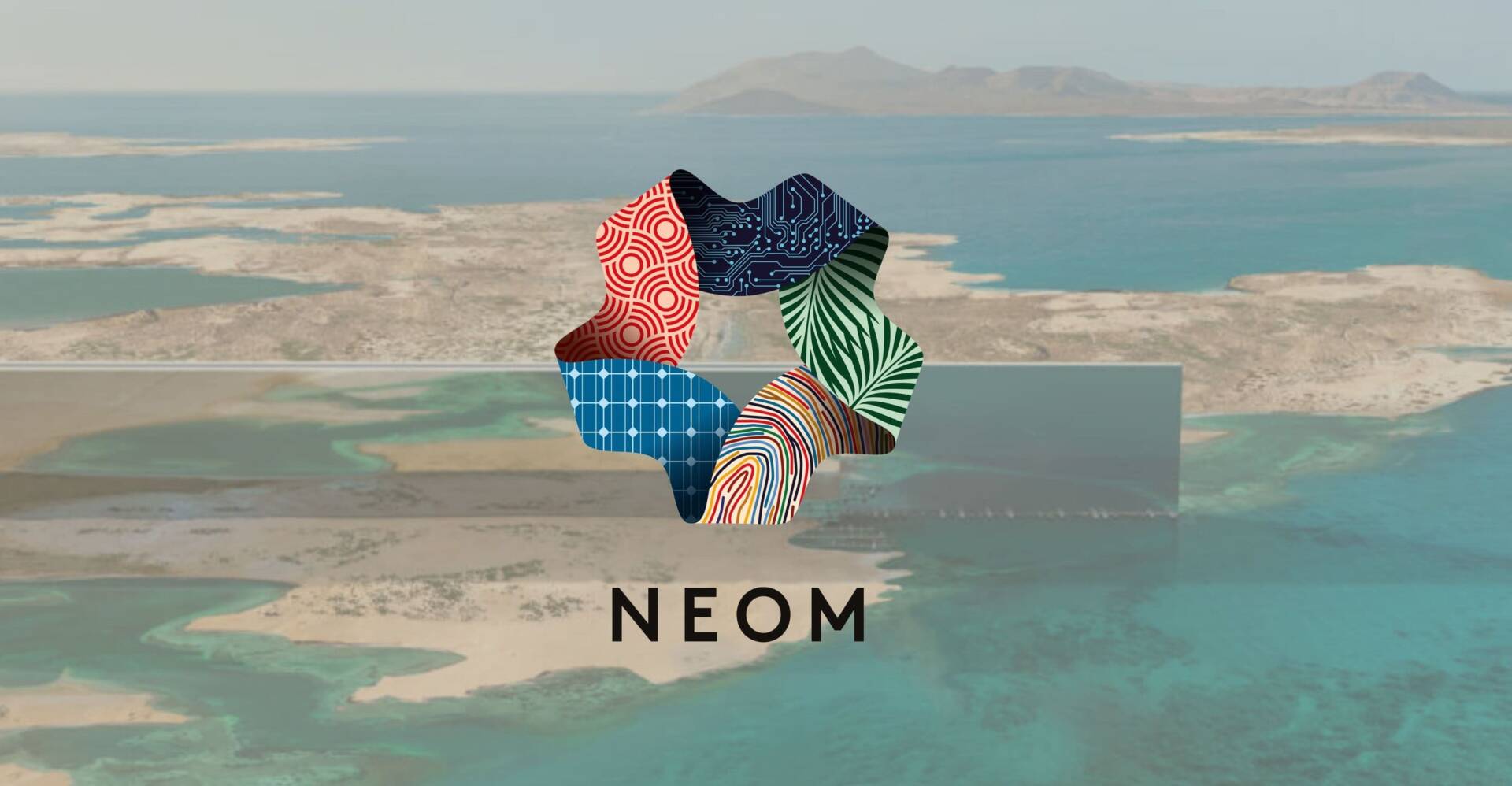FORWARD FOODING
THE BLOG
Why Retail Categories Are the Future of Upcycled Food
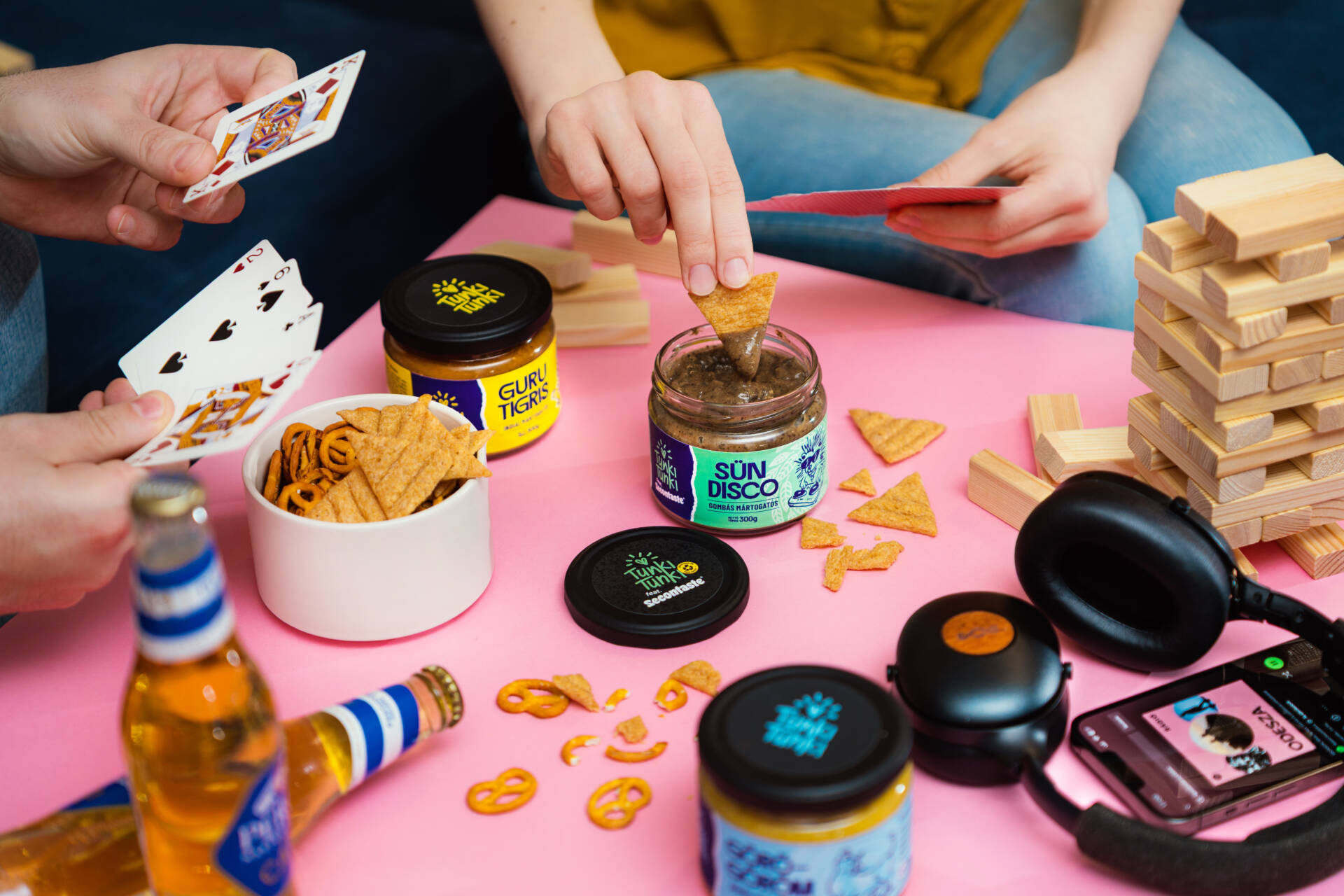
“What if reducing food waste wasn’t just about responsibility, but resilience, growth, and consumer trust?”
This was TransFoodMission founder, Júlia Dalmadi’s, thought-provoking question that looks into the upcycling movement’s next evolution during the webinar and launch of their latest position paper, “The Strategic Rise of Upcycled Food in Retail.”
Food upcycling transforms food waste into high-quality, nutritious products instead of sending it to landfills, creating a circular economy that has gained official recognition from agencies as a key strategy for reducing food loss and waste. Many AgriFoodTech startups are now pioneering this transformative approach, driving innovation in upcycled ingredients and waste efficiency across the agriculture and food sectors. With a global market size of $54 billion, it’s clearly gaining traction. Yet, its potential has been capped by fragmented efforts: one-off product launches and siloed initiatives that fail to build lasting consumer momentum. Our FoodTech Data Navigator counts about 480+ companies worldwide working with upcycling processes, having raised collectively $5B+ over time, with a peak year of $1.6B raised in 2023.
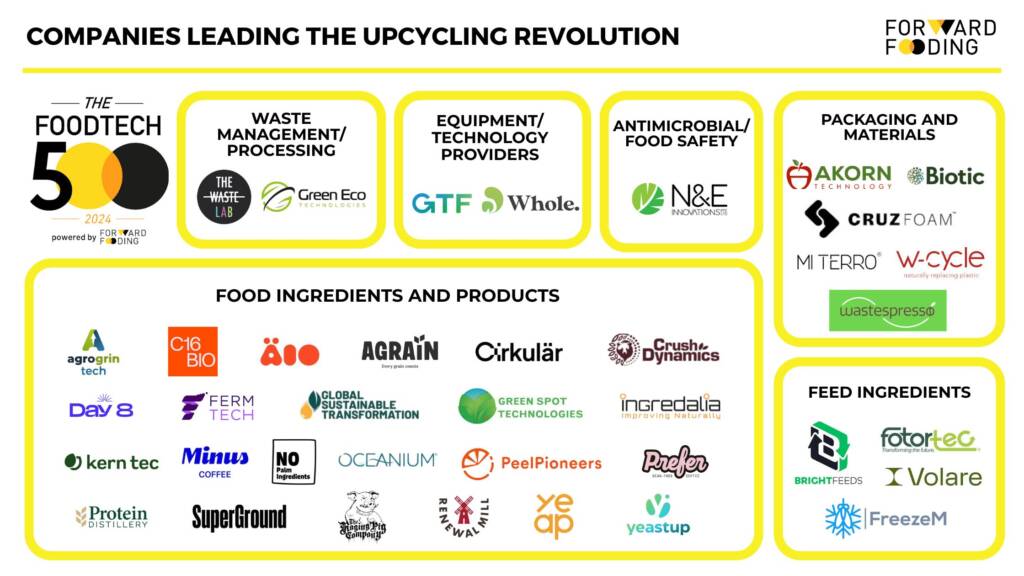
In their new position paper, TransFoodMission argues that the path forward requires a systemic shift. For upcycling to become mainstream, the industry must move beyond launching individual products and focus on building dedicated, multi-brand upcycled food categories within retail.
A New Definition for a New Strategy
At the heart of this shift is a broader definition of upcycling itself. Rather than treating it as a reactive, end-of-pipe fix for waste, TransFoodMission advocates for integrating circular principles from the very beginning of product development. It means prioritizing byproducts and surplus streams as valuable, functional ingredients, not as an afterthought.
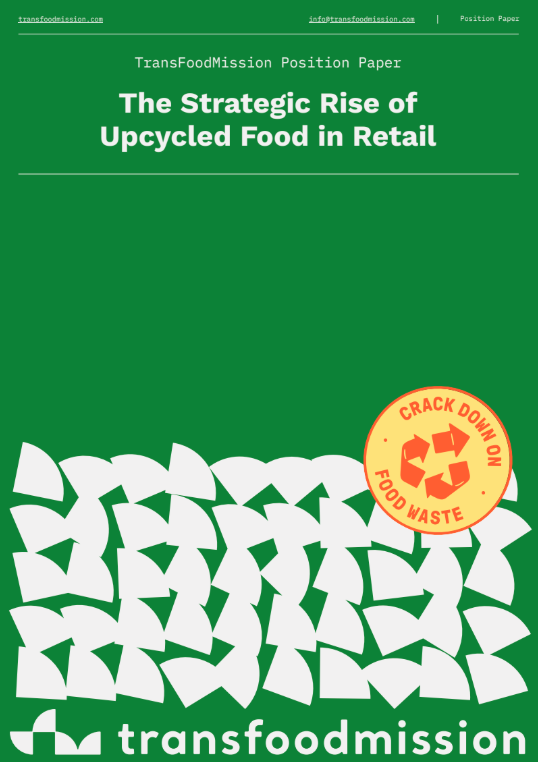
“When upcycling is done right, it becomes a circular design strategy and not just a sustainability patch”. – Júlia Dalmadi
This proactive approach is essential for building the resilient supply chains of the future.
The Retailer as the Linchpin
The position paper identifies retailers as the indispensable catalyst for this transformation. They occupy a unique position, wielding direct influence over both upstream manufacturing priorities and downstream consumer behavior. Manufacturers are often reluctant to invest in new upcycled products without the certainty of a retail partner, while shoppers, who are increasingly looking for sustainable options, rely on retailers to curate and validate new categories.
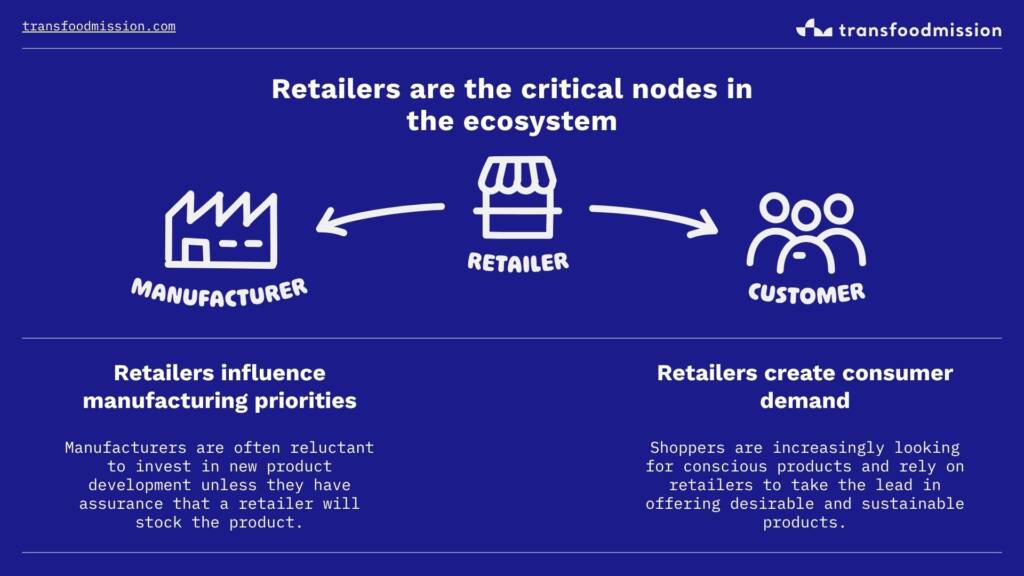
By establishing a formal, multi-brand upcycled category, retailers send a powerful signal to the entire ecosystem. They de-risk innovation for suppliers, create a clear and discoverable space for consumers, and position themselves as leaders in the circular economy. They become, as the paper notes, “cultural gatekeepers” who can normalize sustainable consumption.
The Blueprint in Action: The Rohlik Group Case Study
This strategic model is not just theoretical. In 2024, TransFoodMission partnered with the major European online retailer Rohlik Group to launch the continent’s first dedicated retail category for upcycled foods. The process was systematic, beginning with alignment workshops and a comprehensive audit of existing suppliers before moving to portfolio design and operational execution.
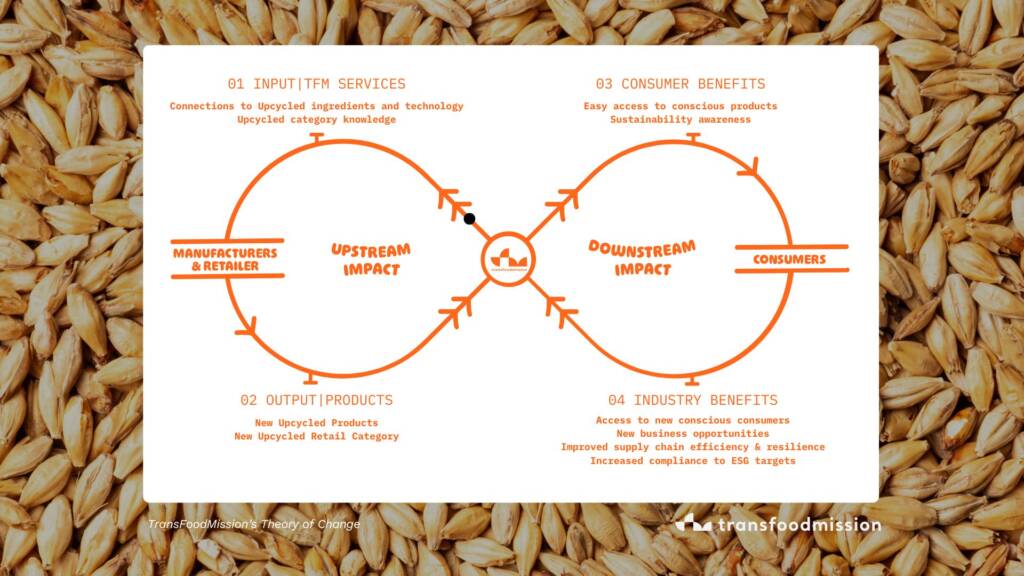
The results from the first four months after launch are a powerful proof of concept:
- Net Sales: The category generated €120,000 from over 32,000 products sold.
- Food Rescued: A total of 7.3 tonnes of food surplus and byproducts were repurposed into the products sold.
- Emissions Saved: An estimated 51 tonnes of CO2 emissions were avoided.
This success underscores a crucial mindset shift. As Katarzyna Kiwalska, Group ESG Manager at Rohlik Group, urged during the webinar, the key is to change perspective.
“Instead of thinking…what to do with the waste, start thinking what kind of benefit you’re losing, of not rethinking your waste”.
This reframes waste from a cost to be managed into a resource for innovation and value creation.
Real Products, Real Impact
The success of this category isn’t just measured in tonnes of surplus saved or CO₂ emissions avoided. It comes to life through the new products and supply chain collaborations it has unlocked. When Rohlik.cz was preparing to launch a high-protein ice cream under its private label, TransFoodMission proposed using pumpkin seed flour, a byproduct of cold-pressed oil production. This not only answered consumer demand for plant-based protein but also improved both the texture and the economics of the final product.
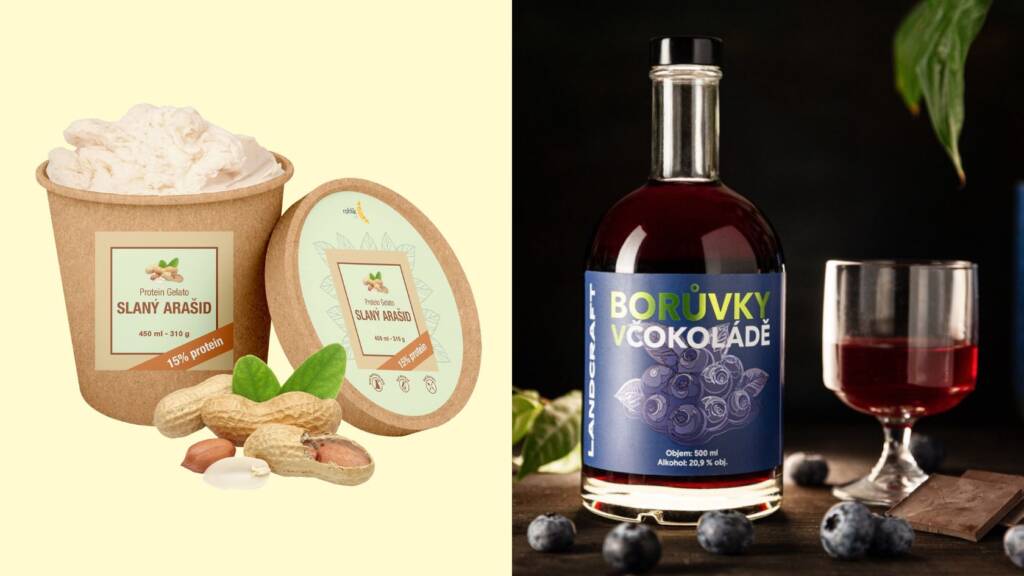
Cocoa husk, another underused byproduct, was transformed into a popular seasonal “choco tea,” offering shoppers an entirely new way to experience chocolate. Meanwhile, the same ingredient supported a local distiller’s new line of spirits that cleverly incorporates warehouse surplus, showcasing how category building can activate multiple value streams from a single supply chain.
There’s also the case of surplus mushrooms, visually imperfect but nutritionally excellent. By connecting the growers with a plant-based spread manufacturer, a new SKU was born — ultimately becoming one of the brand’s top sellers and their first to expand into export markets.
Even ingredients like cascara, once niche in Europe, are now seeing steady growth as shoppers discover them within the familiar, trust-building environment of a dedicated upcycled category.
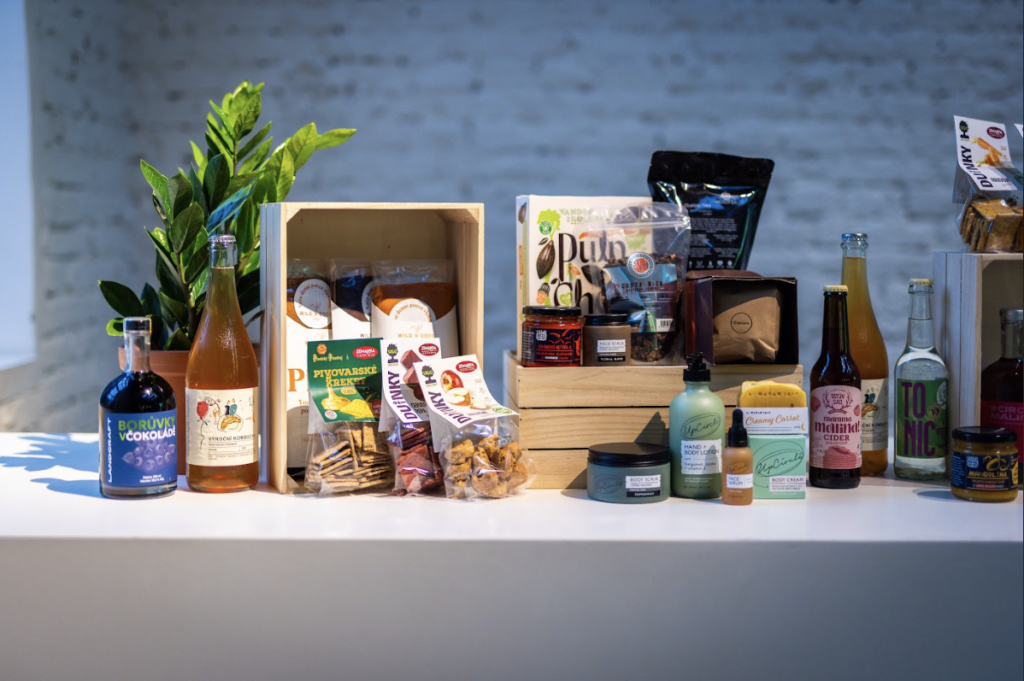
Altogether, these stories illustrate why upcycling shouldn’t be treated as an afterthought. When byproducts become the first choice in product development, it drives innovation, enhances taste, and embeds sustainability directly into the heart of the retail offering.
Building Global Trust and Momentum
For a category to succeed, it must earn consumer trust. While taste and quality are paramount, validation from credible, third-party sources is a powerful tool. This is especially true as the movement grows globally. In a recent webinar discussing the position paper, Vinodthan Nayagar of the certification body Where Food Comes From noted the clear impact of on-pack seals, stating that, “71% of consumers say recognizable 3rd party seals really influence their purchasing decisions”. Certification provides a verifiable, at-a-glance signal of quality and integrity that helps consumers confidently choose upcycled products.
The time for isolated efforts is over. The future of upcycled food lies in building a structured, strategic, and collaborative ecosystem. The success of the Rohlik pilot provides a replicable blueprint for retailers worldwide to move beyond the buzz and build a scalable, profitable, and truly sustainable category for the future of food.
Dive Deeper
To explore the complete strategy and data and for more insights from the experts at TransFoodMission, Rohlik Group, and Where Food Comes From, access the position paper and the full webinar replay here.
Forward Fooding is the world’s first collaborative platform for the Food & Beverage industry via FoodTech Data Intelligence and Corporate-Startup Collaboration – Learn more about our Consultancy and Scouting Services and our Startup Network.
Follow us
Sponsored Articles
9 July 2025
Forward Fooding celebrates the selection of 12 pioneering startups for the inaugural pladis Accelerator Programme. From water lily popcorn to sugar-converting enzymes, these innovations represent the future of snacking, addressing obesity, sustainability, and personalized nutrition through cutting-edge food technology.
21 March 2025
Tim Ingmire, VP of Global Innovation & Technology at pladis, discusses how the snacking giant is supporting early-stage startups in foodtech, health, and sustainability through their accelerator program. Learn about their focus on personalized nutrition, functional foods, and future ingredients to bring innovative, delicious products to consumers worldwide.
8 February 2024
Future Food-Tech returns to San Francisco on March 21-22 Over 1,700 food-tech leaders, from CPG brands, retailers, ingredient providers, [...]
1 February 2023
The 4th edition of FoodTech 500 is taking off and we are excited to partner with NEOM for the third consecutive year to support the best international AgriFoodTech entrepreneurs.
10 February 2022
One of the elements we enjoy the most here at Forward Fooding about working with AgriFoodTech startups is being [...]
